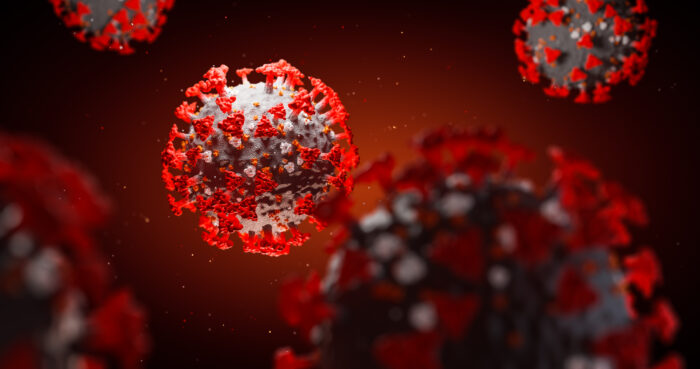
An antibody drug co-developed by Vir Biotechnology and GlaxoSmithKline now has emergency use authorization as a treatment for Covid-19, providing another treatment option for patients in early stages of the disease.

With the Rise of AI, What IP Disputes in Healthcare Are Likely to Emerge?
Munck Wilson Mandala Partner Greg Howison shared his perspective on some of the legal ramifications around AI, IP, connected devices and the data they generate, in response to emailed questions.
The FDA authorization for the drug, sotrovimab (formerly known as VIR-7831), permits use of the drug for treating mild-to-moderate disease in adults, as well as children 12 and older who weigh at least 88 pounds. Those patients must have a positive Covid-19 diagnosis and be at risk of progressing to severe disease that could require hospitalization. Those are the same parameters the FDA set for the authorized Covid antibody from Regeneron and Eli Lilly.
San Francisco-based Vir began working with GlaxoSmithKline on Covid-19 therapies last spring. Sotrovimab is a monoclonal antibody engineered to target the spike protein of SARS-CoV-2 and block the virus’s ability to bind to and enter human cells. The antibody also clears away infected cells. The intravenously infused drug was tested in a Phase 3 clinical trial whose main goal was to show a reduction in hospitalization or death. The study, which enrolled about 1,300 patients, was stopped early in March after data showed “evidence of profound efficacy.”
At the time the study stopped, it had enrolled 583 patients, 291 treated with sotrovimab and 292 given a placebo. Hospitalization or death occurred in 21 patients (7%) in the placebo group. In the treatment group, three patients (1%) died or required hospitalization, an 85% reduction in the risk of hospitalization or death. Potential side effects of the drug include anaphylaxis and infusion-related reactions, rash, and diarrhea.
Even as vaccinations increase, antibody drugs serve as a treatment option for the cases that do arise. These drugs might also play a role in addressing variants of the novel coronavirus. Vir designed its antibody to bind to a region of the novel coronavirus’s spike protein that is “conserved,” which is another way of saying that it doesn’t change much. That feature enable the antibody drug to continue to be effective even as viral changes lead to variants. The FDA noted that Vir and GSK have laboratory data showing that their antibody showed activity against the known circulating variants.
“With the authorization of this monoclonal antibody treatment, we are providing another option to help keep high-risk patients with COVID-19 out of the hospital,” Patrizia Cavazzoni, director of the FDA’s Center for Drug Evaluation and Research, said in a prepared statement. “It is important to expand the arsenal of monoclonal antibody therapies that are expected to retain activity against the circulating variants of COVID-19 in the United States.”
Eli Lilly’s bamlanivimab, which is a single antibody like the Vir/GSK drug, last November became the first Covid antibody drug granted emergency use authorization. But Lilly’s drug fell out of favor due to inefficacy against variants, leading the FDA to revoke its authorization in April. Eli Lilly still has authorization for a drug cocktail that pairs bamlanivimab with etesivimab, an antibody developed by Junshi Biosciences. The other FDA authorized antibody therapy, from Regeneron Pharmaceuticals, is also pairing of two antibodies.
Vir and GSK said that they will make sotrovimab available “in coming weeks.” The companies are also discussing with regulators around the world about potential authorization of the drug in other countries.
Image: Maksim Tkachenko, Getty Images














